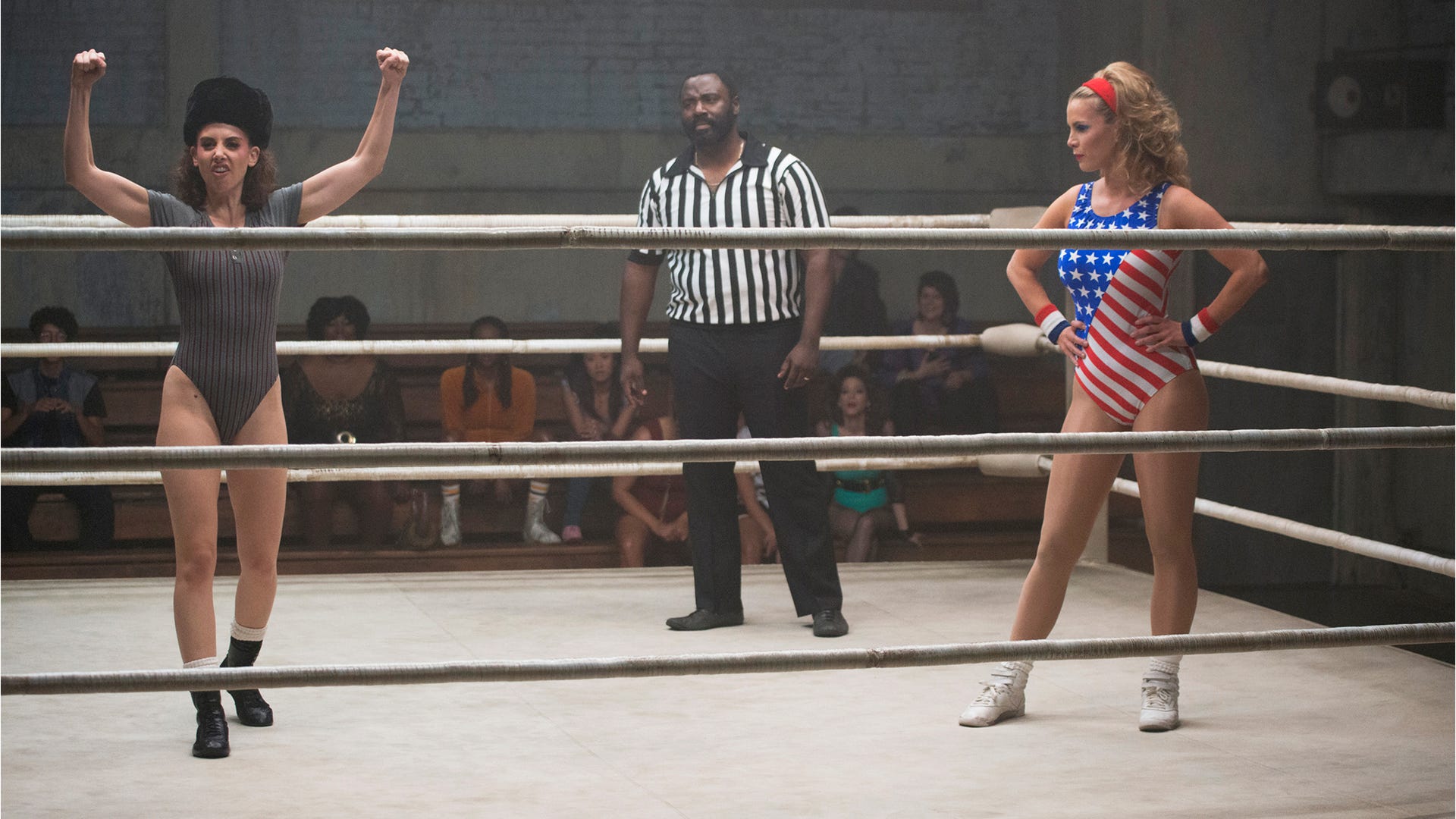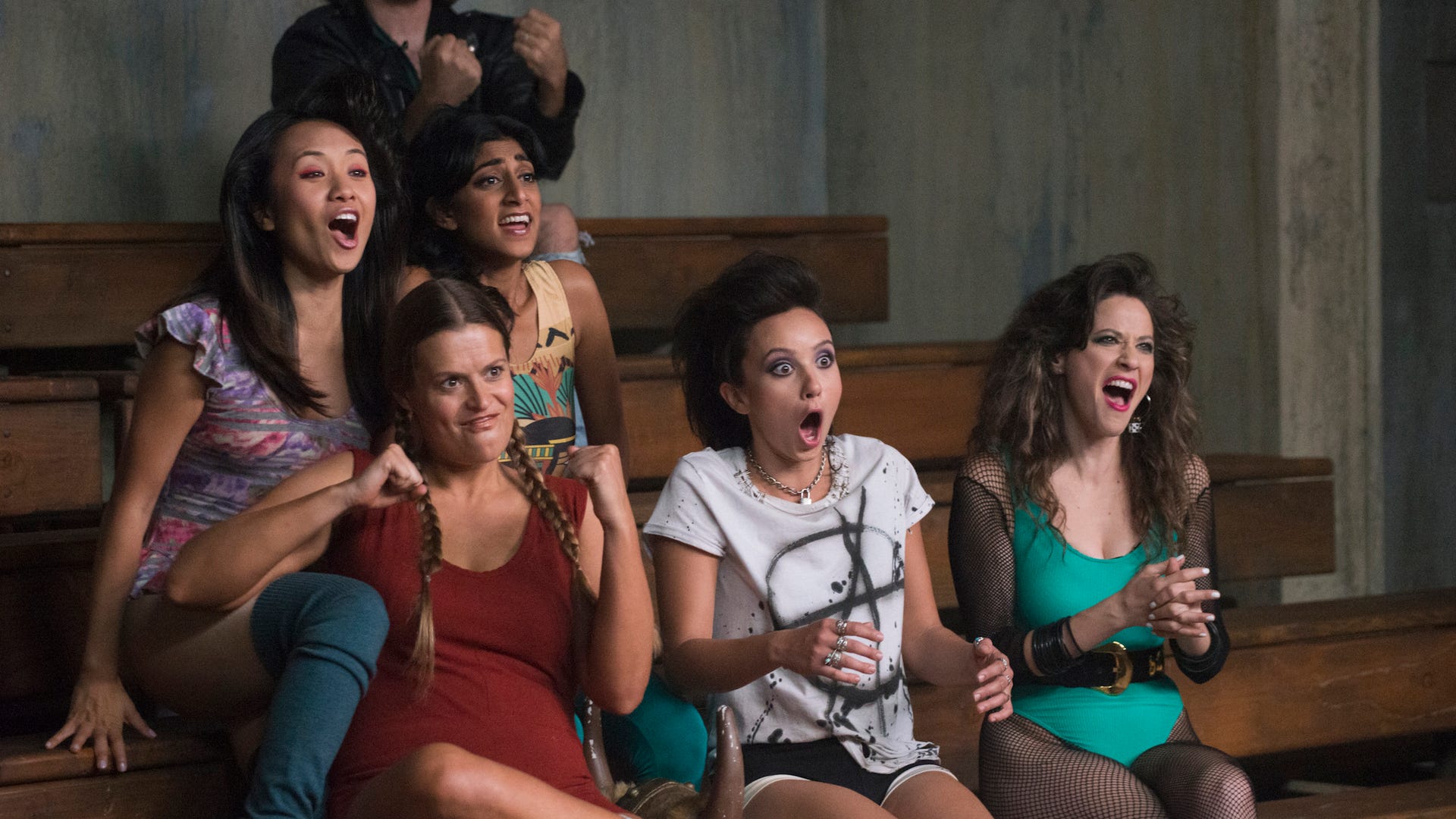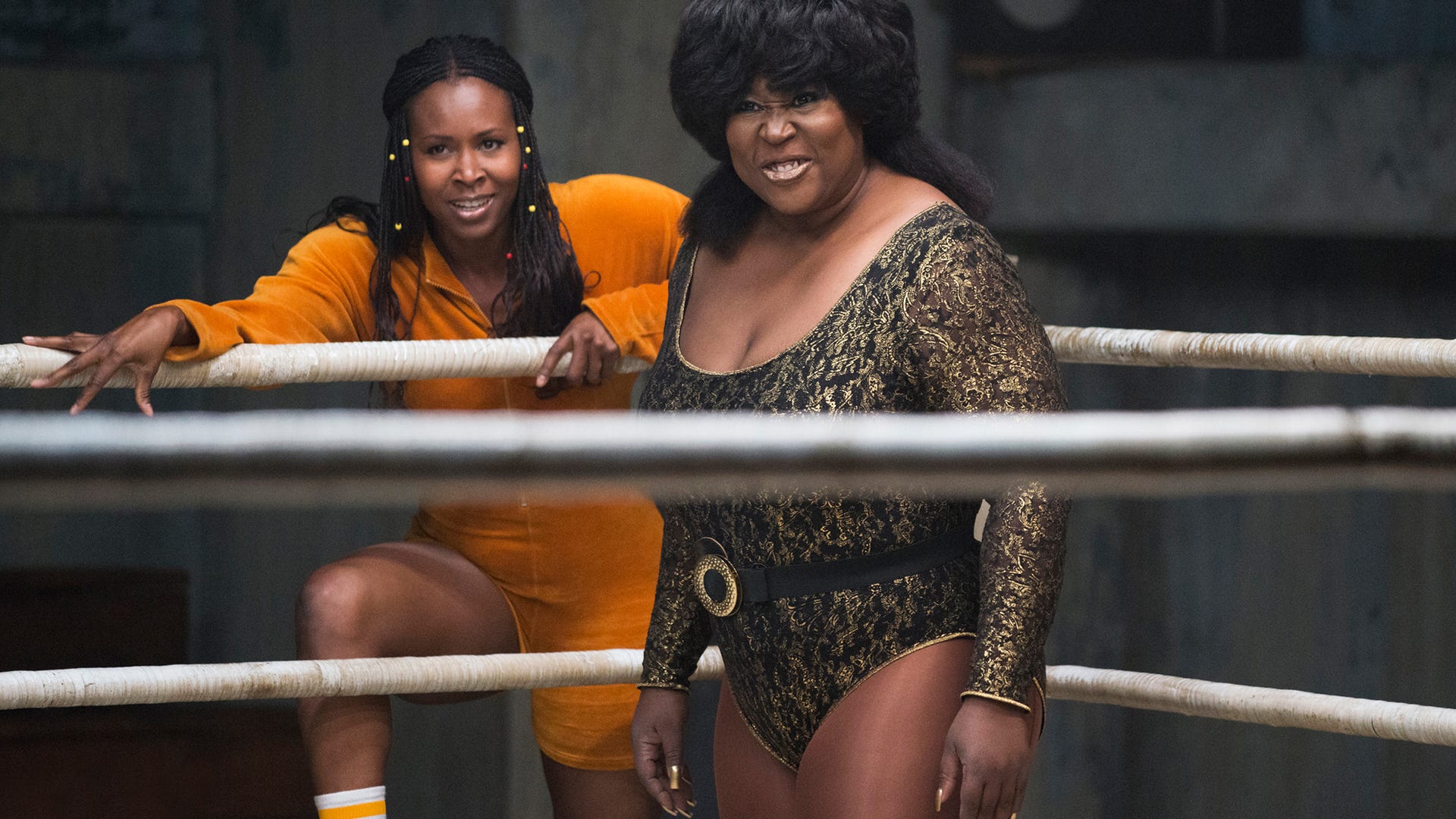Join or Sign In
Sign in to customize your TV listings
By joining TV Guide, you agree to our Terms of Use and acknowledge the data practices in our Privacy Policy.
_GLOW_ Wraps Its Feminist Message in Soft Porn and Spandex
Netflix's summer series is more than just a pretty face
More often than not, when people say a show has a "feminist message," it conjures up images of women going into actual (or metaphorical) battle. But portraying direct confrontation is just one way a program can assert the simple idea that women should have full equality. Sometimes feminist expression is subtle, or even painfully ironic.
In Netflix's new dramedy GLOW, an inescapable feminist message is prominent -- albeit wrapped in layers of camp and spandex. The highly entertaining and sneakily smart show fictionalizes the real-life Gorgeous Ladies of Wrestling show people of a certain age may remember from the '80s. The new series is executive produced by Orange Is the New Black's Jenji Kohan, who with GLOW expands on her skill in assembling a big cast of women and telling captivating stories about their lives.
Central to GLOW are Ruth Wilder (Alison Brie), a not-very-good actress struggling to make it in L.A., and Debbie Eagan (Betty Gilpin), Ruth's slightly more successful friend, whose acting career is stalled by a lack of parts and her domestic commitments. Their eventual boss is Sam (Marc Maron) a washed-up, coke-snorting Hollywood producer -- sleazy as he is socially conscious.
Fall TV 2017-18: All the New Shows

Alison Brie, Bashir Salahuddin, Betty Gilpin, GLOW
NetflixIt's natural to assume that a series about female wrestlers (or more accurately, women pretending to be wrestlers) would be packed with overt Rosie the Riveter-inspired fist-pumping. But GLOW does something much more savvy: show its women in a metaphorical box covered by an impenetrable glass dome. From the very opening scene, in which Ruth is auditioning for a part that's clearly not for her, GLOW shines a neon light on a world in which women have little choice; or choices that constantly involve capitulating to or maneuvering around men.
Debbie, once a promising soap actress, accepts her new identity as (only) her husband's wife and her kid's mom with a reluctant gritting of her teeth. And she, like Ruth, knows that a low-budget female wrestling show is an un-ideal gig -- borderline smut that's just one (short) step up from porn. But what can they do? A girl's got to eat. More importantly, they want to work...and the work, otherwise, isn't there.

GLOW
Erica Parise/NetflixThe show makes its post-ironic savvy particularly evident with the its women of color, whose arcs lampoon prejudice by magnifying it to outrageous proportions. Take for example Tamee (Kia Stevens), who has a kid going to Stanford but is nonetheless dubbed "Welfare Queen" and makes it rain food stamps in the ring. And there's Arthie (Sunita Mani), the Indian woman who is nicknamed "Beirut," and made to portray a Lebanese terrorist. Jenny (Ellen Wong), the lone Asian, is christened "Fortune Cookie." It's uncomfortable, confusing and funny but also rooted in truth (since these personas were similar to ones on the real-life GLOW) and a way of, as Sam puts it, "wrestling with stereotypes."

Sydelle Noel, Kia Stevens, GLOW
NetflixGLOW gets more intricate and complex as the season progresses -- its "lessons" fading into the background as the characters' personal wins and blows take precedence. Ruth and Debbie have a big conflict that advances the wrestling plot; Sam softens a little bit to reveal some decency and even good intentions.
By the end of the season, the women are a community of their own making, a tribe of people who've embraced this nutty idea as a means of embracing themselves. "I'm back in my body," mom and wife and stunted actress Debbie tells Ruth towards the end of the season. "It doesn't belong to (the men in her life). I'm using it for me. I feel like a goddamned superhero." It's enough to knock you out.
GLOW begins streaming Friday, June 23 on Netflix.
